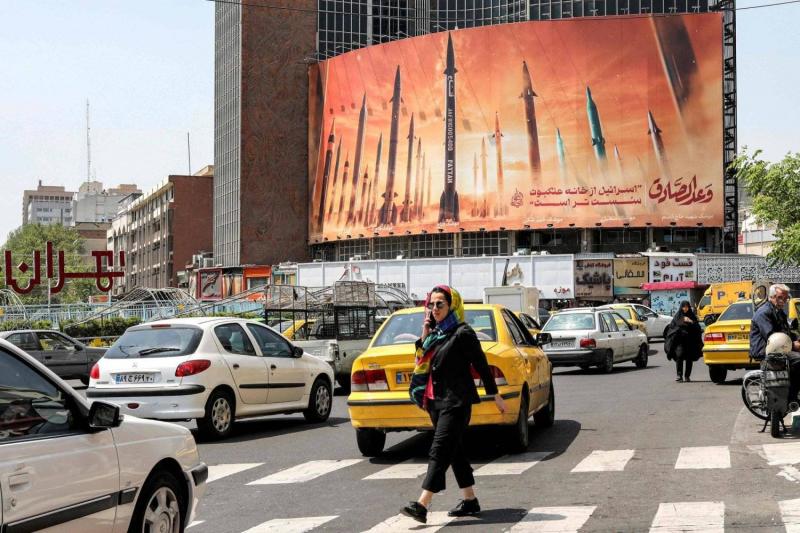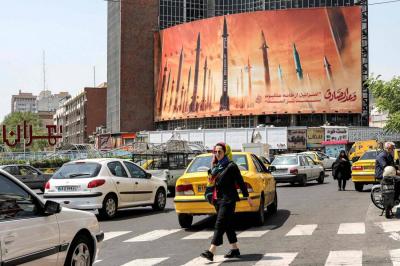A prominent member of the Iranian Parliament stated that the country will respond to Israel, denying any "tactical" retreat, even if a ceasefire is achieved in Gaza. This comes 18 days after the assassination of Hamas leader Ismail Haniyeh while he was in a fortified location belonging to the Revolutionary Guard in northern Tehran. Senior Iranian officials, led by Supreme Leader Ali Khamenei, have threatened retaliatory attacks against Israel, which has neither confirmed nor denied its responsibility for Haniyeh's assassination.
Western powers have exerted unprecedented pressure on Iran since the outbreak of war in Gaza to avoid a second direct attack from Iranian territory on Israel, following the mid-April attack when Israel launched hundreds of ballistic missiles and drones in response to the bombing of its consulate in Damascus. Alongside political pressures, the United States has deployed military reinforcements to the Middle East as a deterrent message to Iran.
With negotiations between Hamas and Israel resuming for a ceasefire a few days ago, the prospects for an Iranian strike have decreased. Last week, Khamenei stated that Iran "will not retreat," describing the Western warnings, including the dispatch of U.S. reinforcements, as "psychological warfare." He told a group of officials that "the enemy's goal from psychological warfare in the military field is to instill fear and retreat... Any non-tactical retreat in any area, whether military, political, propaganda, or economic, brings God's wrath."
Khamenei’s reference to "non-tactical retreat" has sparked speculation among political observers about the possibility that the ultimate decision-maker in Iran might be open to a "tactical retreat," especially given the negotiations aimed at a ceasefire in Gaza. In this regard, Ismail Qotri, a military official in the National Security Committee of the Iranian Parliament and a Revolutionary Guard leader, told the "Didban Iran" website: "People may provide different analyses regarding what the Leader stated, but as the Zionist regime has encroached upon our lands, deciding how to respond to this regime is our legal right, and no one should think that we will concede our rights, even if a ceasefire in Gaza is declared."
Qotri added: "Based on the Leader's directives, vengeance for Ismail Haniyeh is inevitable, but we must never rush into executing potentially large operations; rather, we should carry out all actions based on precise analysis and timely wise measures." He stated, "We must choose the right time and place to respond accurately... since the criminal regime has essentially encroached upon our lands, the Islamic Republic has the right to legitimate self-defense, and we hope to carry out this task, but the choice of time and place for the operation is ours, and the Zionist regime has no option but to wait for a harsh response from Iran... We will respond (...) at the time we choose."
In a related context, the Iranian Foreign Ministry stated in a statement that Acting Foreign Minister Ali Bagheri Kani emphasized in a call with Egyptian Foreign Minister Badr Abdel Atti on Saturday evening the "right of Iran to legitimately respond to Israel." Bagheri Kani and Abdel Atti discussed the latest developments in the negotiations concerning the ceasefire in Gaza, according to the official IRNA news agency.
Last Tuesday, three senior Iranian officials were attributed the view that the only way to postpone Iran's direct response to Israel would be to reach an agreement in the Doha talks. One source, a senior Iranian security official, indicated that the country and its proxies, such as the Lebanese Hezbollah group, would launch a direct attack if the Gaza talks failed or if they felt that Israel was stalling in the negotiations. The Iranian mission to the United Nations in New York stated last week that "the ceasefire in Gaza and Iran's right to legitimate self-defense are unrelated."




